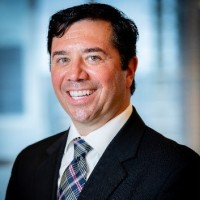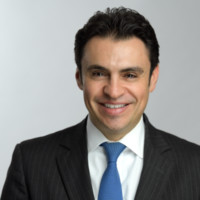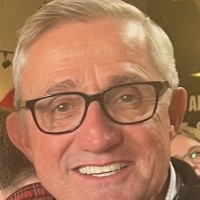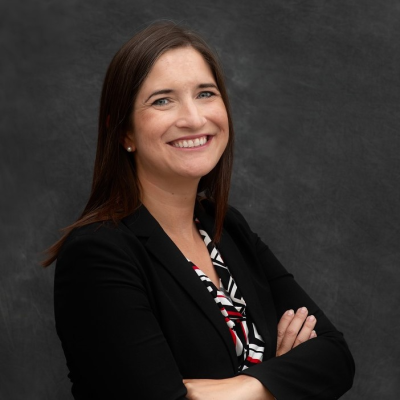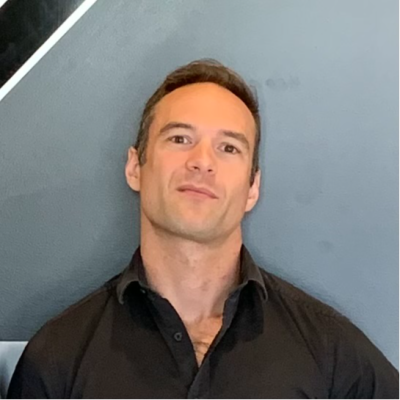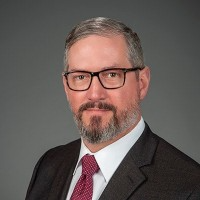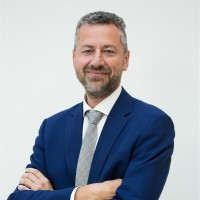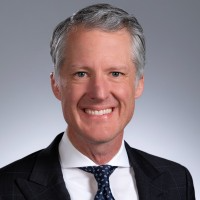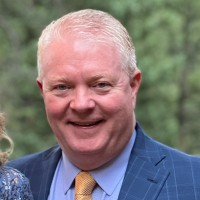Main Conference Day 2: Thursday, June 4, 2026
View the schedule for Day 2 of the Methane Mitigation: Technology & Innovation Summit, where international engineering excellence meets executive strategy.
7:00 - 7:30
EARLY RISER BREAKFAST: Optimizing your Technology Stack for Accurate Detection and Quantification
Grab your coffee and join an interactive conversation on how operators are getting the most accurate methane insights by mixing and matching technologies. We’ll talk about what works best together, how to deploy solutions across different assets, and the trade-offs between cost, coverage, and precision. Hear real-world lessons on creating a monitoring strategy that’s practical, scalable, and future-ready.
7:30 - 8:00
Check in and Networking Breakfast
8:00 - 8:10
Chair’s Opening Remarks
8:10 - 8:40
Panel: Strategic Leadership on Methane: Budgeting, Buy-In, and Business Impact
Aaron Wimberly -
Chief Health, Safety, and Environmental Officer,
Aethon Energy
Saamir Elshihabi - Executive Vice President of LCV Strategy, Oxy Low Carbon Ventures, Oxy
As methane mitigation moves from compliance to core strategy, executive teams are being asked to define what ambition looks like, and how it will be resourced, in the next 2 to 5 years. With shifting regulatory signals across global markets, the challenge is not just technical, but organizational: how to embed methane into investment planning, attract the right future talent, and build internal alignment and durable strategies that drive sustained impact.
- Understand what drives executive buy-in for methane projects across different organizational contexts
- Explore how regulatory shifts influence internal strategy and investment decisions at the leadership level
- Gain insight into how methane strategy is being embedded into culture, talent attraction, and cross-functional collaboration in 2026 and beyond
8:40 - 9:30
Lightning Talks: Notes from the Field
Get ready for rapid-fire insights straight from the front lines of methane mitigation. These mini case studies spotlight real-world challenges, the innovative approaches taken, and the outcomes that matter. In just minutes, you’ll gain practical lessons and fresh ideas from operators tackling some of the toughest issues in detection and reduction, including:
- Optimizing Reciprocating Rod-Packing to Minimize Emissions
- Deploying Acoustic Imaging for Precision Leak Detection
- Fugitive Emissions – how much of a problem really are they?
9:30 - 10:00
Panel: Demand for Differentiated Gas in Global Markets: US, Europe, Asia and Beyond
Joshua Zier -
ESG Senior Advisor (North America),
Engie SA
Keith Shoemaker - Chief Commercial Officer, Coastal Bend LNG
- Understand how buyers in different regions are evaluating “differentiated gas” today, including what attributes actually matter to them and why market demand remains uneven
- Explore the commercial and contractual barriers slowing the flow of differentiated gas (e.g., attribute ownership, traceability, legal risk, and contracting structures) and what progress looks like in overcoming them
- Gain clarity on how geopolitical forces, especially the EUMR and shifting LNG trade flow, are shaping procurement decisions and influencing global appetite for low-methane gas
- Identify the communication and market-building steps still needed to make differentiated gas “real” to end-users, moving beyond technical performance into value recognition and willingness to pay
10:00 - 10:30
Networking Break & Coffee Cup Exchange
We all know the best ideas and connections start over coffee. Choose from 4 thematic, coloured coffee cups, each addressing a unique methane-related challenge to connect with likeminded peers and discuss the challenges that matter to you most. One coffee, one cup, one great conversation at a time!
E&P Track
10:30 - 11:00 Panel: The Future of Satellites: Unlocking Global Impact Through Data Angela Zivkovich - Environmental and Conservation Policy Manager, Oxy- Understand the current capabilities and limitations of satellite-based monitoring and what’s realistically achievable today
- Explore how major satellite operators, governments, and NGOs are collaborating and how satellite data is being used publicly
- Identify commercial models and partnership structures that turn satellite data into actionable intelligence while maintaining compliance and trust
- Debate the next frontier: AI integration, real-time analytics, and policy frameworks shaping the future of satellite innovation
E&P Track
11:00 - 11:30 Presentation: Electrification of Pneumatics: Balancing Emission Reduction with Reliability- Real-world operator experiences transitioning from gas pneumatics to electric systems.
- Overcoming reliability challenges in remote or off-grid sites.
- Integration with asset integrity and maintenance programs.
E&P Track
11:30 - 12:00 Case Study: Doing More with Less: NorthEast Natural’s A-to-Z Approach to Practical Methane Reduction Bj Carney - Vice President of Geoscience and Innovation, Northeast Natural Energy- Understand how operating as a small, compact facility shapes methane mitigation strategies compared to large-scale plants.
- Explore the evolution of NorthEast Natural’s methane journey – from initial challenges to current best practices
- Learn key lessons from implementing an end-to-end approach: what worked, what was rethought, and why.
- Assess the business impact of methane reduction initiatives on cost, compliance, and operational efficiency
- Identify practical steps for scaling solutions in resource-constrained environments without sacrificing performance
E&P Track
12:00 - 12:30 Case Study: Achieving OGMP 2.0 Level 5 Across an Entire Asset Base – A BPX Story Clay Bell - Low Carbon Data Analyst, BPX Energy- Understand how BPX built a full-asset methane inventory capable of meeting OGMP Level 5 requirements, from data architecture to source-level modelling
- Learn how field measurements, bottom-up engineering estimates, and top-down technologies were integrated to reduce uncertainty and create a defensible, verifiable dataset
- Examine what worked—and what didn’t—in aligning teams, workflows, and asset groups around a unified measurement and reporting framework
- Identify the technical challenges ahead, including flare destruction efficiency measurement and improving precision for next-generation reporting cycles
Transmission & Storage Track
10:30 - 11:00 Panel: Cutting Through the Noise: Selecting the Right Detection Technology for Midstream Operations in a Crowded Market Dawn Meyers - EHS Manager - Air & GHG, Kinder Morgan IncGabriella Farnham - Director, Environmental Analytics and Reporting, Phillips 66
Anthony Poukish - Manager - Environmental Engineering, Energy Transfer
- Compare the performance and limitations of detection technologies across diverse midstream environments
- Learn how to design “fit-for-purpose” monitoring portfolios for gathering, transmission, and storage assets
- Explore approaches for validating vendor claims through field pilots and structured performance evaluation
- Understand how to align technology choices with maintenance, reporting, and compliance requirements
Transmission & Storage Track
11:00 - 11:30 Presentation: Methane Math: Standardizing Midstream Emissions Calculations Amid Regulatory Uncertainty- Understand the key midstream sources of methane emissions and their relative impacts.
- Explore approaches to selecting and applying emissions factors consistently across facilities.
- Learn strategies to standardize calculations and reporting in the absence of U.S. federal guidelines.
- Gain insights into industry best practices for credible, auditable midstream emissions data.
Transmission & Storage Track
11:30 - 12:00 Abatement Spotlight Case Study: Scaling Methane Recovery Through Recompression: Lessons from TC Energy Andy Collard - Manager, Emissions Management, TC Energy- Explore the decision-making framework and cross-functional approach that enabled TC to embed recompression into standard maintenance practice
- Understand the operational and logistical considerations involved in deploying mobile transfer compressors and managing risk in remote locations
- Review data-driven results, including emission reductions achieved, and explore lessons learned to inform future abatement strategies across operations
Transmission & Storage Track
12:00 - 12:30 Case Study: From Testing to Value Creation: How a Cross-Functional Governance Model Is Turning Methane Strategy into Commercial & Technical Advantage Anthony Poukish - Manager - Environmental Engineering, Energy Transfer- Discuss how a cross-functional pipeline surveillance and GHG governance structure enables faster, more confident decisions across a large, complex asset base.
- Explore how field-based technology testing helps separate vendor promise from operational reality and de-risks large-scale investment decisions.
- Evaluate how methane measurement, certification pathways, and emissions performance are increasingly intersecting with commercial strategy, customer requirements, and emerging low-carbon gas markets.
- Examine how internal capital discipline, return thresholds, and executive steering processes shape which methane and decarbonization initiatives ultimately move forward and how operators can strengthen the internal business case
Distribution and Power Gen Track
10:30 - 11:00 Panel: The Business Case for Methane Mitigation for Natural Gas LDCs Greg Jones - Chief of Maintenance, Southern Co- Explore how global methane expectations for LNG and export markets are influencing domestic gas economics and infrastructure investment decisions.
- Debate who ultimately bears the cost of methane mitigation in distribution—utilities, customers, upstream suppliers, or governments.
- Examine strategies for building a credible business case under bifurcated market realities (premium export value chains vs cost-sensitive domestic customers).
- Consider how to manage the tension between “perfect” methane performance and practical, affordable progress in regulated utility environments
Distribution and Power Gen Track
11:00 - 11:30 Case Study: Powering Methane Reduction: The Power Gen Perspective- Understand the unique methane challenges in power generation
- Explore proven strategies and technologies that power producers are deploying to detect, quantify, and reduce methane emissions.
- Discover operational changes that deliver measurable reductions without compromising reliability or efficiency.
- Learn how power generators integrate methane abatement into broader decarb and ESG strategies.
- Identify investment and partnership opportunities
Distribution and Power Gen Track
11:30 - 12:00 Case Study: Optimizing Methane Abatement Through Smarter Leak Prioritization in Gas Distribution Networks- Enhance cross-department collaboration between engineering, operations, and compliance teams to drive faster execution
- Enable smarter capital allocation by aligning methane investment decisions with highest system-wide impact
Distribution and Power Gen Track
12:00 - 12:30 Presentation: Optimising Grid Surveys with Advanced Mobile Leak Detection Leonardo Ambrosi - Innovation and Digital Transformation Director, Italgas- Explore intuitive route planning, instant alerts, and automated reporting that streamline workflows and boost operational efficiency
- Discuss high-frequency, ppb-level detection of methane for precise leak quantification, even behind obstacles or in high-occupancy areas
- Examine how modular, on-foot systems improve safety, reduce downtime, and support FCO and ELR teams with pinpoint accuracy and flow rate insights
12:30 - 13:30
Lunch & Networking Break
13:30 - 14:00
Panel: Celebrating Collaboration: Our 2026 Methane Mitigation Partnership Awards Winners
Innovation thrives on collaboration, and some of the most impactful methane projects are born from strong partnerships between operators and solution providers. In this session, we’ll hear directly from the winners of our 2026 Methane Mitigation Excellence Awards – ‘Industry Partnership’ Category. These award-winning teams exemplify how joint ambition, technical ingenuity, and operational alignment can deliver measurable methane reductions.
Join us as two standout collaborations take the stage to share the story behind their success, from concept to deployment, and offer insights into what it takes to build partnerships that move the needle.
- What made these partnerships successful: aligning technical capabilities with operational needs
- Lessons learned from deploying methane mitigation technologies in real-world settings
- How collaboration helped overcome regulatory, commercial, or implementation barriers
- What’s next: scaling impact and replicating success across the industry
14:00 - 14:30
Panel: Data Centres Enter the Methane Equation: Powering AI with Lower-Emission Gas
Solomon Adenle -
Senior Manager - Power Infrastructure,
BP
David Ferris - President & Chief Executive Officer, Brownstone Energy
As hyperscale data centres drive explosive growth in energy demand, developers are increasingly looking beyond just low-carbon power to the full emissions profile of their energy supply, including upstream methane intensity. With natural gas playing a critical role in balancing renewables and supporting grid reliability, data centre operators are emerging as a powerful new demand signal for low-methane gas.
- Examine how leading data centre operators are assessing and integrating methane intensity into their energy procurement strategies
- Consider how exponential growth of natural gas power generation for data centres is reshaping methane slip considerations and emissions strategies.
- Discuss how hyperscalers balance speed to energization with electrical efficiency, methane slip, and overall emissions performance
- Analyze what requirements buyers of power and gas may soon place on upstream operators and energy suppliers
- Explore whether low-methane certified gas could become a commercial differentiator in power purchase agreements and energy offtake deals
14:30 - 15:00
Presentation: Standardizing Measurement-Informed Inventories: From Data Discrepancy to Decision-Grade Methane Metrics
Anna Hodshire -
Atmospheric Chemist,
Colorado State University (METEC)
- Explore how different technology pathways (aerial, continuous, site-level) are currently being used to develop measurement-informed inventories — and why these approaches are not yet comparable across companies.
- Evaluate the methodological choices that most significantly impact a company’s final methane intensity and emissions inventory outcomes.
- Discuss how emerging frameworks such as OGMP, Veritas, and national reporting schemes are shaping the future of measurement-informed inventory development.
- Examine how greater standardisation and transparency can help operators create inventories that are both technically robust and commercially credible — enabling fair, apples-to-apples comparisons across industry.
15:00 - 15:30
Case Study: Securing Leadership Buy-In For New Tech: Your 101 Crash Course
Paul Espenan -
SVP ESG and HSE,
Diversified Gas & Oil
- Understand the Decision Drivers: Learn what matters most to executives when approving tech investments in uncertain markets.
- Build a Compelling Narrative: Translate technical benefits into strategic outcomes that resonate with leadership.
- Overcome Common Objections: Practical tactics to address risk concerns, budget constraints, and ROI skepticism.
- Create a Roadmap for Success: Steps to position your proposal for quick approval and long-term impact.
15:30 - 16:00
Panel: The CIO Factor: Leading Methane Management Through Digital Transformation
- Unpack the growing role of CIOs and IT teams in shaping methane strategies through digital innovation.
- Debate in-house systems vs. third-party platforms—pros, cons, and what drives the right choice.
- Learn how digital tools enable accurate MRV and compliance while delivering operational and financial value.
- Understand what successful collaboration looks like between IT, environmental, sustainability, and ESG teams to ensure platforms deliver accurate reporting and enable proactive emissions decision-making
16:00 - 16:30
Closing Keynote: Future Outlook: Global Regulatory Exchange
Andrea Felix -
Senior Regulatory Policy Advisor,
New Mexico Oil & Gas Association
As methane regulations evolve at different speeds across geographies, operators and investors are being forced to navigate a fractured policy landscape with direct consequences for market access, contractability, and capital allocation.
This panel convenes global regulators to move beyond individual rulebooks and explore how convergence is (and isn’t) happening, what equivalency will really look like in practice, and how industry should position itself for the next wave of regulatory transformation.
- Gain forward-looking insight into how methane regulations are expected to evolve across Europe, North America, Asia and emerging markets over the next 3–5 years
- Understand where regulatory convergence and divergence are most likely, and what that means for equivalency, reporting and cross-border market access
- Hear what regulators are learning from each other on MRV design, enforcement models, and scalable best practice frameworks
- Identify how operators can stress-test their compliance and investment strategies against future regulatory scenarios and geopolitical shifts


